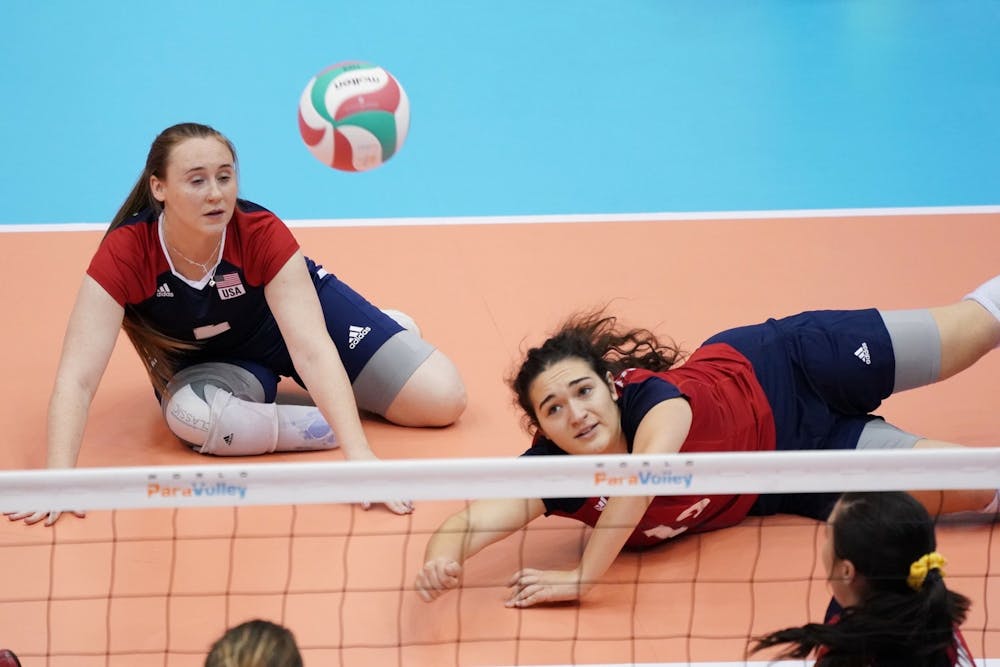This month marked the end of the Tokyo Olympics, as athletes from around the globe return home to reflect on their performance on the world’s biggest stage. But another group of athletes are only just beginning their time in Tokyo, with the Paralympic Games set to begin Aug. 24.
A sophomore at UNC, Emma Schieck is part of the next generation of the United States’ sitting volleyball program. Born with a brachial plexus injury that restricts movement in her left arm, Schieck played standing volleyball her whole life before trying sitting volleyball in 2017.
“She’s had this injury since birth, but never did we restrict her or limit her,” Emma’s mother, Beth Schieck, said. “There were physical limitations, but she always did whatever she wanted to do.”
Sitting volleyball is an alternative to standing volleyball, with a lower net, smaller court and players that are only allowed to move using their arms. While its rules are almost identical to standing volleyball, the play style and body movements are completely different, making the transition difficult for even the most athletic players.
After being approached by a representative from the Women’s Sitting National Team at a standing volleyball tournament in Atlanta, Schieck attended sitting camps in Virginia, Oklahoma and California before deciding to pursue sitting volleyball full time.
She impressed in these camps, eventually earning an invitation from the Women’s Sitting National Team coach to train with the team.
“I was kind of like, ‘Oh crap, how can I say no to this?’” Schieck said. “This is something people work their whole lives for. And I went, and I loved it. I absolutely fell in love with the sport.”
Schieck went from having never heard of sitting volleyball to playing with some of the country’s most experienced players — some of whom are old enough to be her mother.
But the decision to join the Women's Sitting National Team was not an easy one.



